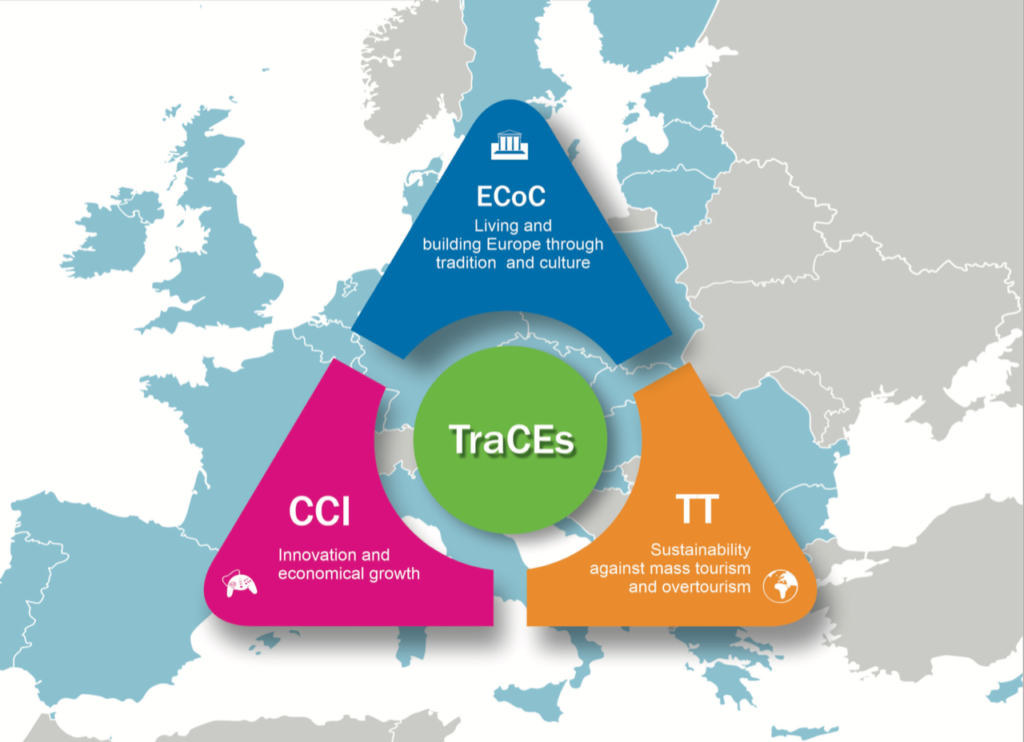Europe is not just a continent and it is surely more than a confederation of states. Europe, that’s the people and their cultures, that have united behind the idea of common values and long-time traditions of arts, culture, humanity, tolerance and togetherness.
Since 1985, those traditions and values have been regularly presented and exemplified in the annually two European Capitals of Culture (ECoC). Since 2010 until 2024 at least 29 cities became active in this sense; or will be active.
But important for the future of the European idea is the continuity of this process of exchange and experiencing the common values related to the Capitals of Culture. You would fatally miss every opportunity, if the concept of the Capitals of Culture would only manifest an annual event in two cities, and when it’s over, there is no exchange, no network of the cities. No exchange that prepares the basics for a network of European citizens.
Such a network of citizens arises when you talk to each other, read messages from each other, show yourself pictures, visit each other. This is where the digital world of social media and tourism come into play. It creates the conditions for maintaining an interest in every European Capital of Culture even outside the respective Capital-of-Culture-year. An interest in tourism that increasingly refers not only to historically or architecturally important buildings, art collections or other tourist highlights, but also to people‘s everyday lives and a “look behind the scenes”.
And beside this, TraCEs also activates a further impulse for the interaction of European Capital of Culture and transformative tourism. The Cultural Creative Industry is actively involved in this project – knowing, that art and creativity are important motors for cultural and social progress and that (artistic) creatives also foster economic innovation. With its spillover effects from open-ended (artistic) creativity to result-oriented economical use, CCI opens up precisely the potential, with which the idea of transformative tourism in the European Cultural Capitals can be practically and economically handled by citizens planning their tourism.
Thus, the concrete development of a virtual tool at the cutting edge of technology, which will benefit all partners of a transformative tourism and the network of travelling citizens of Europe, is also a goal of TraCEs. Due to the basically open-ended character of artistic-creative processes, no concrete statements can be made at the beginning about the forms of these economically usable artistic-creative tool. TraCEs and its partners involved are certain, however, that in workshops between creative people on the one hand and tourism experts on the other site in the various Capitals of Culture, exactly those ideas and concepts will be worked out, which are either helpful for the guiding idea of the European exchange of lifestyles, experiences and cultures and also realize an economically usable impulse for transformative tourism. So let’s now delve deeper into the triangle of European Capital of Culture (ECoC), Transformative Tourism (TT) and Cultural and Creative Industries (CCI) and into the relationships between these cornerstones:

